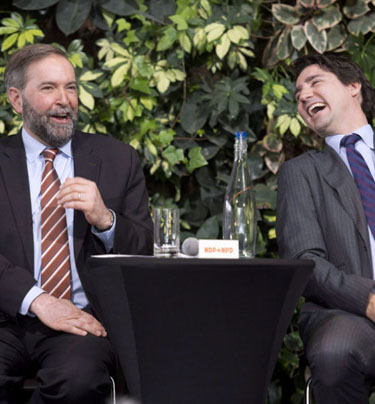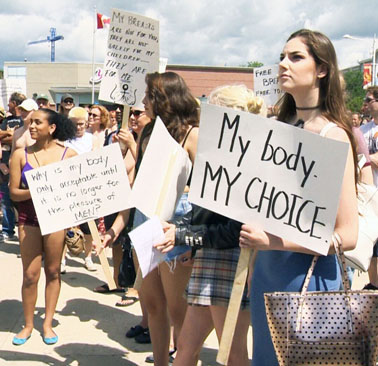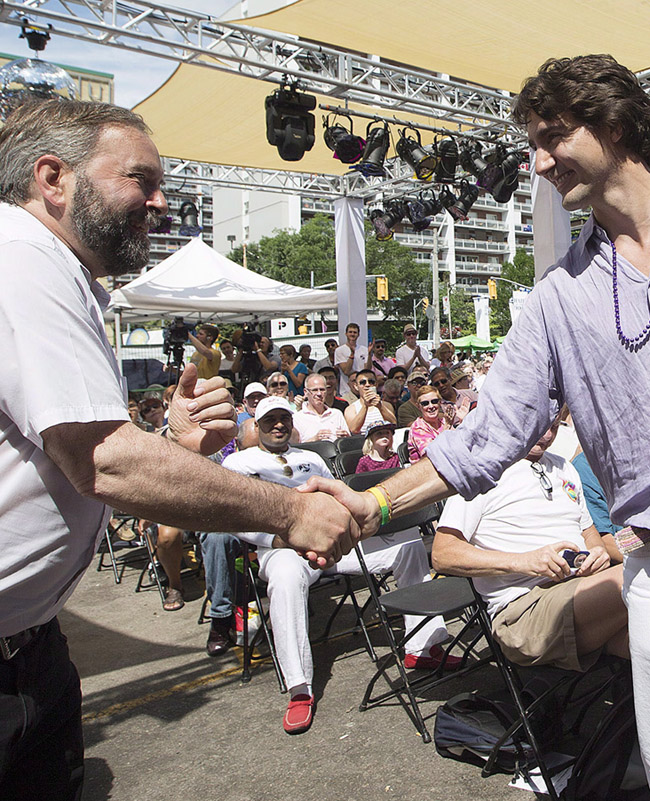What happens if Harper Conservatives “win” only minority government .. and not largest share of popular vote?
Aug 2nd, 2015 | By Counterweights Editors | Category: In Brief Now that Stephen Harper has “called” a “long federal election” – Â for October 19, as already prescribed in his own 2007 fixed election date legislation – Â here are three quick notes to celebrate the start of the official campaign (as opposed to the unofficial one underway for almost too long already) :
Now that Stephen Harper has “called” a “long federal election” – Â for October 19, as already prescribed in his own 2007 fixed election date legislation – Â here are three quick notes to celebrate the start of the official campaign (as opposed to the unofficial one underway for almost too long already) :
(1) Fixing elections? When we actually have elections on the fixed dates prescribed in our fixed election date legislation (which we now enjoy in Canada, federally and in all provinces except Nova Scotia), the concept of “calling” an election makes no sense, in theory.
In practice we still seem to need (or want?) a comparatively short official election campaign period (well … usually), during which various especially strict rules and regulations apply?
(2) Is having the most money the same as being most popular? PM Harper’s advice to Governor General Johnston to “drop the writ” today means the official campaign period for the election on October 19, 2015 will be unusually long. And the story is that this benefits the Conservatives because they have more money to spend than either the Liberals or the NDP.

Supporters of women’s right to go bare breasted in public demonstrate in Waterloo, Ontario, in protest against police oppression of topless women organized by Alysha Mohamed and her two sisters, Tameera and Nadia, August 1, 2015. (And who said Muslim women are conservative?)
On TV lately the Conservatives have been claiming they have more money because they are the “most popular” party. New Democrats of our acquaintance say no : it is because Conservative policies appeal to people who have more money. And the latest data from Elections Canada suggest the New Democrats could have some kind of  point.
In the second quarter of this year the federal Conservatives raised $7.4 million from 45,532 donors. The NDP raised $4.5 million from 48,314 donors, and the Liberals raised $4.03 million from 32,789 donors. Ie, the Conservatives raised the most money, but the New Democrats had the largest number of donors! So who is most popular?
(3) On the kind of Conservative minority government most easily replaced by a NDP-Liberal post-election “coalition” : The latest permutation of Eric Grenier’s CBC Poll Tracker – based on polling data as of July 28 and including the latest Forum and EKOS polls – suggests a very slender Conservative minority government (132 seats, where 170 seats is a bare majority), based on a share of the Canada-wide popular vote (31.6%) somewhat smaller than that won by the NDP (32.1%).
 On the same scenario the NDP has 122 seats along with the Liberals’ 81 seats (based on 25.6% of the Canada-wide vote). And these numbers generally raise strong prospects for some kind of post-election NDP-Liberal majority governing alliance – of the sort that both the latest Forum and EKOS polls suggest a two-thirds majority of NDP and Liberal voters approve of and even actively want and/or ardently desire.
On the same scenario the NDP has 122 seats along with the Liberals’ 81 seats (based on 25.6% of the Canada-wide vote). And these numbers generally raise strong prospects for some kind of post-election NDP-Liberal majority governing alliance – of the sort that both the latest Forum and EKOS polls suggest a two-thirds majority of NDP and Liberal voters approve of and even actively want and/or ardently desire.
Both polls also suggest that a substantial Canada-wide minority of voters (especially but not just those who plan to vote Conservative) would oppose the concept of a NDP-Liberal majority governing alliance replacing a Conservative minority government, following a defeat of the minority government in parliament.
Yet the ultimate force of this kind of “anti-coalition” argument is blunted significantly when one of the coalescing or even just co-operating progressive parties actually has a larger share of the Canada-wide popular vote than the minority-governing Conservatives. And this is more or less exactly the situation prophesied by the current edition of Eric Grenier’s CBC Poll Tracker, as the official 2015 Canadian federal election campaign begins … Â in the middle of a strange and possibly even seminal summer … (And may the best man “win” of course … or, again in theory, the best woman called Elizabeth May.)
